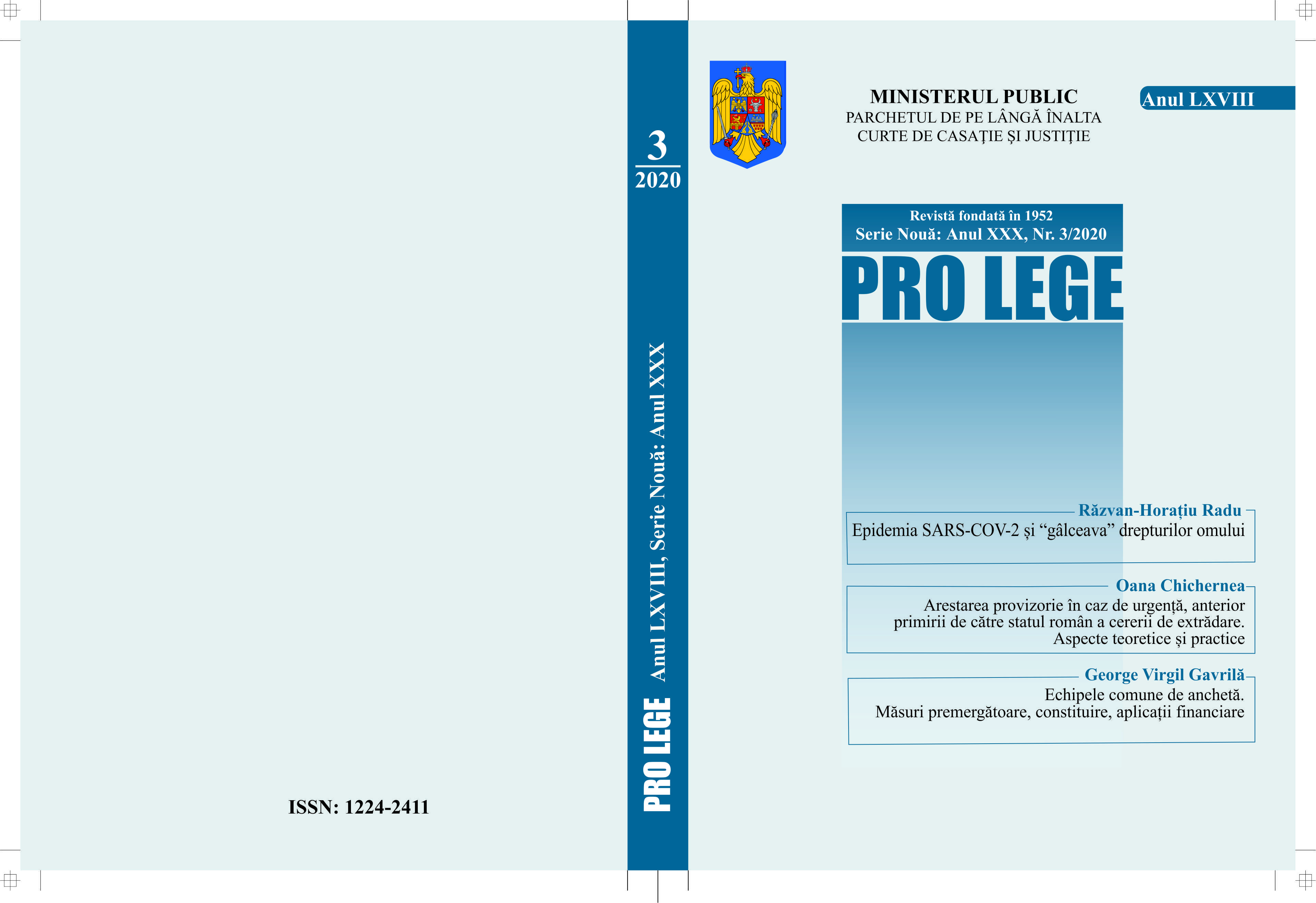Articolul 2 (aspect substanțial). Obligații pozitive. Autoritățile au manifestat suficientă diligență în ciuda anumitor amânări și omisiuni provocate de comportamentul obstructiv al martorilor plasați sub protecție
Article 2 (substantive aspect). Positive obligations. Authorities have exercised sufficient diligence despite the certain delays and omissions caused by the obstructive behavior of witnesses placed under protection
Author(s): Antonia-Eleonora ConstantinSubject(s): Law, Constitution, Jurisprudence, Civil Law
Published by: Universul Juridic
Keywords: the right to life; positive obligations; witness protection; threatened witnesses; diligence of the authorities; noninfringement; non-cooperation of witnesses; compromise of protection measures;
Summary/Abstract: Article 2 of the Convention requires states not only to refrain from intentional and unjust touches on life. At the same time, it requires them to take the necessary measures in order to protect the lives of the persons under their jurisdiction. In this regard, the obligation of states extends beyond their primary obligation to ensure the observance of the right to life through the application of effective criminal law, in order to prevent the commission of offenses against persons protected by the law enforcement mechanisms. Article 2 of the Convention is applicable, in certain well-defined circumstances, as a positive obligation of the authorities to take preventive measures, capable of ensuring the protection of an individual whose life is threatened by the criminal actions of other persons. This obligation must be interpreted in a manner that does not impose an impossible or disproportionate burden on the authorities. Thus, not every alleged risk to life imposes, under the Convention, on national authorities, the requirement to take operational measures in order to prevent the materialization of any risk. In the Court's view, where it is alleged that the national authorities have breached their positive obligation to protect the right to life, it must first determine whether the authorities have known or should have known of an immediate and real risk to the life of a particular person or persons, arising from the criminal acts of a third party and if they have failed to take measures which fall within their competence and which would reasonably have been capable of avoiding that risk. Considering that the right protected by art. 2 is a fundamental right in the Convention system, it is sufficient for the complainant to indicate that the authorities did not do what was reasonably expected of them, in order to avoid a real and immediate risk to a person's life, a risk which they had or he should have known. These issues must be determined in the light of all the particular circumstances of the case. Article 2 of the Convention is applicable even if the person whose right to life is claimed to have been violated has not died.
Journal: Revista Pro Lege
- Issue Year: 2020
- Issue No: 3
- Page Range: 270-291
- Page Count: 16
- Language: Romanian

